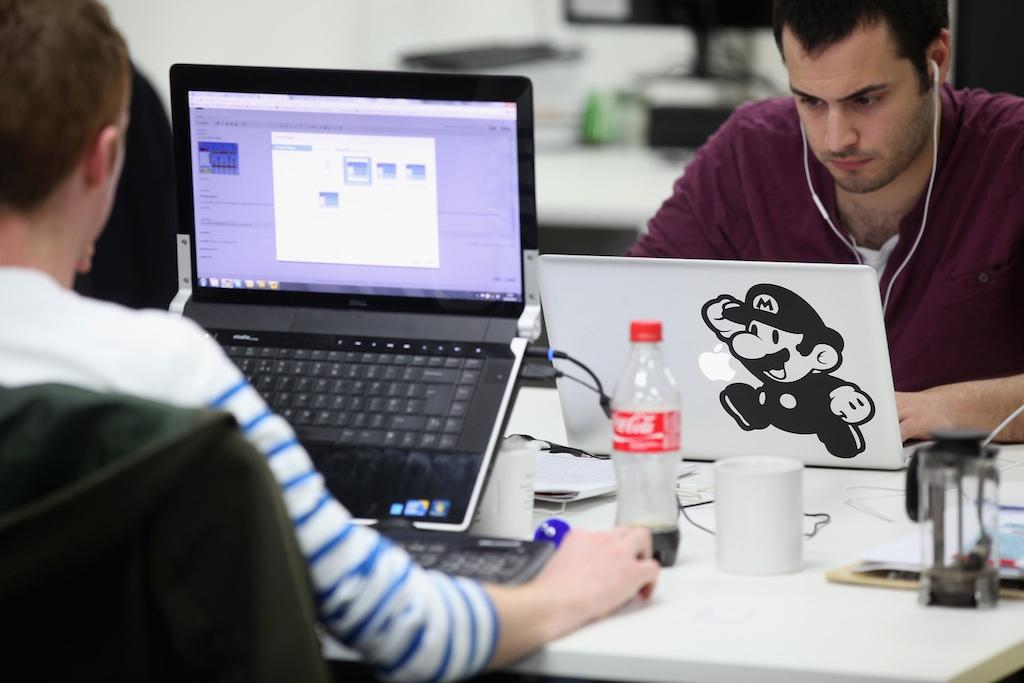Facebook, Instagram, Pinterest and Snapchat: what they have in common
People work at computers in TechHub, an office space for start-up entrepreneurs, near the Old Street roundabout in Shoreditch which has been dubbed ‘Silicon Roundabout’ due to the number of technology companies operating from the area on March 15, 2011 in London, England.
Most startups fail. But there is a common thread among some of the most successful startups:
Consumers, not investors or tech blogs, find them first.
A few examples:
Facebook was founded in February 2004. It received seed funding, $500,000 seven months later. Then, Facebook already had more than 100 million monthly page views and 70,000 users. By the time Mike Arrington wrote about the first TechCrunch article on Facebook, it was in September 2005 and 85 percent of college students were already using it.
Instagram was loved by "normals" before the tech world became obsessed. It went through a rough period when investment firm Andreessen Horowitz ultimately picked another startup, PicPlz, over it. Then it turned heads in September 2011 when its co-founder, Kevin Systrom, announced Instagram had 9 million users 11 months after its relaunch.
Pinterest, which is now worth more than $1.5 billion, circulated among moms and crafters before it got noticed in the blogosphere. We first wrote about it in July 2011 after learning about it from its early investors. That was three years after its launch. When Andreessen Horowitz put the first big money into the company three months later, it already had one billion monthly pageviews.
Snapchat is the latest teenage craze and it's just now getting investor and tech blog interest. In December it announced an $8 million financing, the first round it has raised since it was founded in May 2011. Now 50 million pictures are being shared daily over the platform. That's higher than Instagram's daily upload number.
Where did investors learn about Snapchat? Again, from people who aren't tech obsessed. USV's Fred Wilson recently wrote, "I like to talk to my kids and their friends. Here is a typical college aged woman I know. She uses Twitter, Instagram, Cinemagram, Foursquare, iMessage, and Snapchat. And Facebook too. She uses each of them for what they are good for. Each of them is on her home screen — one click and she is sharing something with someone."
It's much harder to get consumers to adopt new products than to get forward-thinking technology investors and experts on board. So, if you want to accurately predict the next big thing, ask your parents or children what they use. Once a startup attracts normal people, the rest is cake.
More from our partners at Business Insider:
More from Business Insider: Sexting app Snapchat is a threat to Facebook, and it is 2013's most likely billion dollar startup
More from Business Insider: This guy got his stolen iPhone back by pretending to be a hot girl on dating site
More from Business Insider: Why the iPhone is suddenly winning in the US
More from Business Insider: Adam D'Angelo: what I learned working for Facebook
More from Business Insider: Ginny Rometty's rival that almost got the CEO job is leaving IBM
Every day, reporters and producers at The World are hard at work bringing you human-centered news from across the globe. But we can’t do it without you. We need your support to ensure we can continue this work for another year.
Make a gift today, and you’ll help us unlock a matching gift of $67,000!
